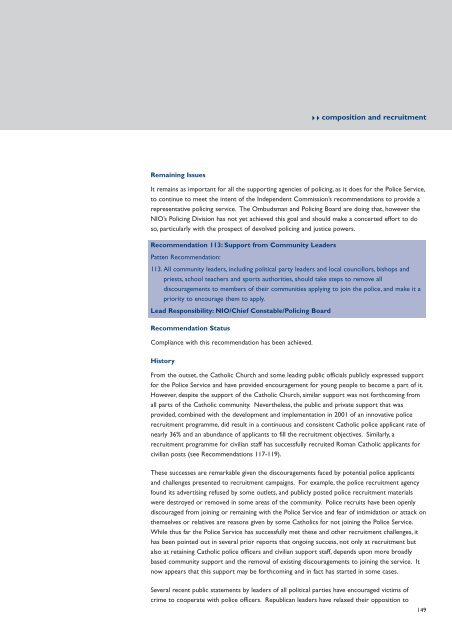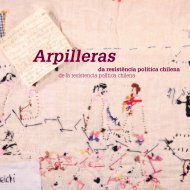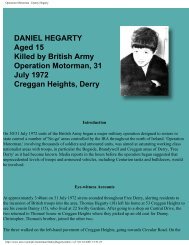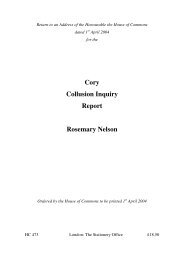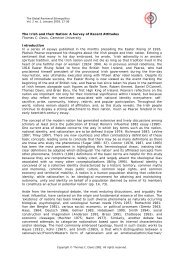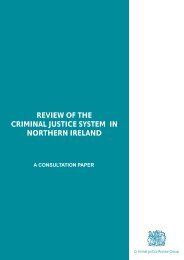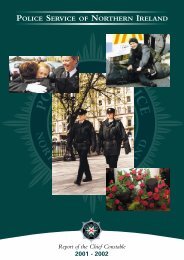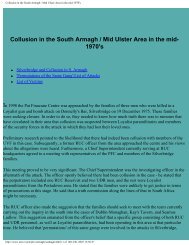11293 report 19 - CAIN - University of Ulster
11293 report 19 - CAIN - University of Ulster
11293 report 19 - CAIN - University of Ulster
Create successful ePaper yourself
Turn your PDF publications into a flip-book with our unique Google optimized e-Paper software.
composition and recruitmentRemaining IssuesIt remains as important for all the supporting agencies <strong>of</strong> policing, as it does for the Police Service,to continue to meet the intent <strong>of</strong> the Independent Commission’s recommendations to provide arepresentative policing service. The Ombudsman and Policing Board are doing that, however theNIO’s Policing Division has not yet achieved this goal and should make a concerted effort to doso, particularly with the prospect <strong>of</strong> devolved policing and justice powers.Recommendation 113: Support from Community LeadersPatten Recommendation:113. All community leaders, including political party leaders and local councillors, bishops andpriests, school teachers and sports authorities, should take steps to remove alldiscouragements to members <strong>of</strong> their communities applying to join the police, and make it apriority to encourage them to apply.Lead Responsibility: NIO/Chief Constable/Policing BoardRecommendation StatusCompliance with this recommendation has been achieved.HistoryFrom the outset, the Catholic Church and some leading public <strong>of</strong>ficials publicly expressed supportfor the Police Service and have provided encouragement for young people to become a part <strong>of</strong> it.However, despite the support <strong>of</strong> the Catholic Church, similar support was not forthcoming fromall parts <strong>of</strong> the Catholic community. Nevertheless, the public and private support that wasprovided, combined with the development and implementation in 2001 <strong>of</strong> an innovative policerecruitment programme, did result in a continuous and consistent Catholic police applicant rate <strong>of</strong>nearly 36% and an abundance <strong>of</strong> applicants to fill the recruitment objectives. Similarly, arecruitment programme for civilian staff has successfully recruited Roman Catholic applicants forcivilian posts (see Recommendations 117-1<strong>19</strong>).These successes are remarkable given the discouragements faced by potential police applicantsand challenges presented to recruitment campaigns. For example, the police recruitment agencyfound its advertising refused by some outlets, and publicly posted police recruitment materialswere destroyed or removed in some areas <strong>of</strong> the community. Police recruits have been openlydiscouraged from joining or remaining with the Police Service and fear <strong>of</strong> intimidation or attack onthemselves or relatives are reasons given by some Catholics for not joining the Police Service.While thus far the Police Service has successfully met these and other recruitment challenges, ithas been pointed out in several prior <strong>report</strong>s that ongoing success, not only at recruitment butalso at retaining Catholic police <strong>of</strong>ficers and civilian support staff, depends upon more broadlybased community support and the removal <strong>of</strong> existing discouragements to joining the service. Itnow appears that this support may be forthcoming and in fact has started in some cases.Several recent public statements by leaders <strong>of</strong> all political parties have encouraged victims <strong>of</strong>crime to cooperate with police <strong>of</strong>ficers. Republican leaders have relaxed their opposition to149


